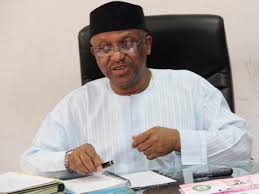By Hassan Zaggi
The Federal Government has flagged-off and disseminated the Nigeria National Essential Diagnostics List (NEDL).
The policy document was developed with the support from the World Health Organization (WHO) and Global Fund and has the overall goal of improving access to testing, diagnostic capacities during outbreak, affordability of test, regulation and quality of diagnostic test across the country.
Speaking while flagging-off the policy document in Abuja, on Monday, the Minister of Health, Osagie Ehanire, said this makes Nigeria the first country to develop her Essential Diagnostics List (EDL) in Africa and second in the world following India.
According him: “Over the past few years, there has been increased recognition of the importance of diagnostic testing in healthcare, and especially in achieving the goal of Universal Health Coverage (UHC), but until recently, there have been few strategic efforts designed to develop the evidence base on which policymakers can rationally increase and improve access to diagnostic testing.
“To ensure nationwide implementation of this important document, we have also ensured the approval of this guidance document at the emergency meeting of the National Council on Health. By this, all states in the Federation are encouraged to implement the use of the document.
“The NEDL enlists 145 diagnostic test categories comprising 65 general In Vitro Diagnostics (IVDs) to aid the diagnosis of a range of disease conditions; 73 disease specific IVDs in clinical settings covering primary, secondary, tertiary and national reference laboratories and 7 IVDs for screening of blood donations. It also includes 12 general IVDs and 15 disease specific IVDs for use in community and health settings without laboratories.”
Commenting, the Country Representative of the WHO, Dr Walter Mulombo, applauded the federal government for joining the list of countries like India, Bangladesh and Pakistan that have adopted the WHO concept of Essential Diagnostic List, and has produced one that is aligned to the disease prevalence in their country.
Represented by Public Health Emergencies Advisor of the WHO, Dr. Alexander Chimbaru, the Country Representative said: “The WHO Essential Diagnostic List which was first published in 2018, is a list of recommended in vitro diagnostics that should be available at point of care and is intended as a guidance document for countries to create their own national list based on their local context and needs.”
The National Essential Diagnostic List, he stressed, is expected to complement and enhance the impact of the Essential Medicines List (EML) which has recorded great improvement in availability and affordability of medicines and quality of patient management.
He, therefore, “encourage all the States and health facilities to use the National Essential Diagnostic List as this will not only improve the health system capacity to reach accurate diagnosis but will save health resources wasted on inappropriate treatment.”



